PWT’s
https://www.morson.com/jobs/rail-and-transportation/contract/london/protecting-workers-track-pwt
T002/3’s
https://www.morson.com/jobs/rail-and-transportation/contract/london/t0023-track-handback-engineer
For all current jobs click here:
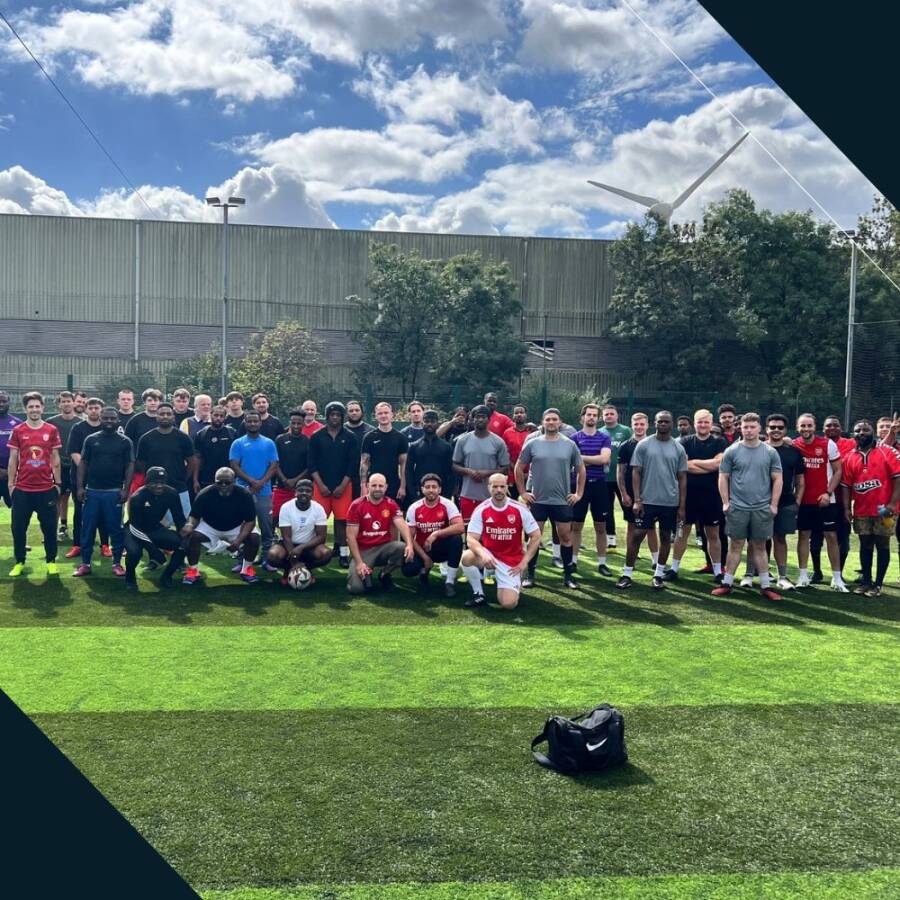
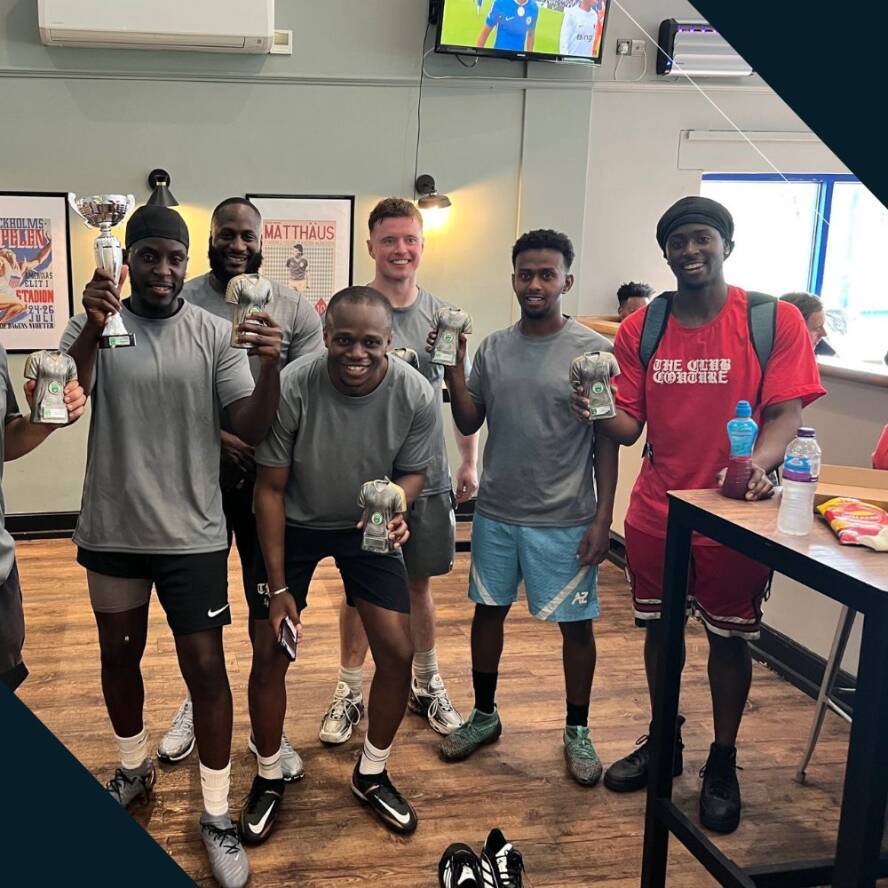
Our London teams laced up their boots once again for the return of the Morson London Charity Football Tournament, held on Saturday 30th August at Powerleague Newham. This year’s event was a huge success, raising an impressive £2,500 for two incredible causes: Prostate Cancer UK and Destination Florida Children’s Charity.
What started back in 2022 as a small idea to bring the rail workforce together has now grown into a firm favourite on the Morson calendar. Organised by Chris Humphreys, Operations Manager, the tournament has become much more than a day of football. It is a chance to connect, unwind and give back.
A record turnout and a great atmosphere
This year saw over 50 players take part, with teams representing various areas of the track world. The atmosphere was buzzing from kick off, with plenty of friendly competition, good humour and plenty of moments to remind us why this event keeps growing.
It was especially rewarding to see colleagues and contractors mixing outside of the work environment. Sharing stories, cheering each other on and building relationships that make a real difference day to day.
Friends, family members and spectators came along too, bringing plenty of energy and encouragement to the sidelines.
Raffle winners and big smiles
Alongside the football, the charity raffle was a huge highlight, with many fantastic prizes up for grabs. From vouchers to sports gear and donated goodies, the raffle drew crowds and added to the feel good spirit of the day.
Every ticket bought helped us reach the final total of £2.5k raised, which will be evenly split between our two chosen charities.
Why we do it
Chris shared his thoughts on how the event has grown:
“I set up the first London Morson Charity Tournament to bring people together for a proper day out, football, laughs and purpose. This year has been our best yet, and it is great to see how much these events mean to the teams on and off the pitch.”
A huge thank you
A big thank you goes out to everyone who played, supported, donated, helped run the event or simply came along to enjoy the day. Your involvement made this tournament another unforgettable milestone.
We are already looking forward to making next year’s event even bigger and better.
Here’s to teamwork, charity and another fantastic result both on and off the pitch!
Charity & community
Morson London charity 7-a-side tournament: A day of football, fundraising and team spirit
Please remember to adhere to Morson’s Drugs and Alcohol Policy. Testing positive for drugs and alcohol will led to a 5 year ban from working on the railways, or worse as the following article shows:
Advice & guidance
Synthetic Opioids: What are they and why are they so dangerous?
Ket: While each high lasts minutes. For some the damage to their bladder could last forever
Drug and alcohol warning
Advice & guidance
Winter driving tips


Advice & guidance
Returning to work after the festive period


Olaide Adescope, PWT TM
Sean Sidwell, Dave Osborne and Ayodeji Jayesimi
Charlie Ebo Daniels, PWT
“Pleased to say no negative items to feedback from this morning with Train 621. Sone nice collaboration between the OWTs and the ETOs at completion of loading.'
PWT TM Mr Ade [Mr Adesope] continues to impress me highly with his remarkable commitment to providing the safest possible environment, he controls every aspect of behaviour on site taking full personal ownership of managing any issues. A real safety leader role model deserving of recognition.”
From Neil Pepper
“Just wanted to update, that even with the tamper breaking down, and not being able to tamp through the site.
We delivered as planned + more, a total of 126x sleepers were installed through the EBLO platform at Southfields, we ended up changing 150x Pan 11 chairs through the site, lifted and kango packed through the consolidate through, all new rehau pots were installed through the site, conductor rails fettelled on completion.
I just want to say thankyou to the supervisors on site Sean Sidwell Dave Osborne Ayodeji Jayesimi all the support from the Access team with TVP’s, the labour supply teams, cleaning ambience team, Dawn Ablitt for the support with asbestos checks, section 61, letter drops ect.
And to have no incidents or accidents through this magnitude of works over a 36 hour window, is truly a credit to all the staff on site, the focus and site discipline was exemplary.
TNS Supervisors, please pass on my thanks to the lads, and ensure, that there dedication, doesn’t go unnoticed.”
From Parimal Mamtora, London Underground
“Last night at West Ham I was observing one of my ACI’s conducting an inspection on PWT Charles Ebo Daniels, I have encountered Charles on a few occasions now and have always found him friendly, positive and always fully compliant, last night was no different.
Having checked previous records he had a previous positive report raised (EIRF 229527) on the 20thNovember 2024.
His work group were vocal in their support and praise for him too last night, could you please pass on my thanks for his positive behaviours and compliance last night as well as during past interactions.”
From Steven Harris, London Underground

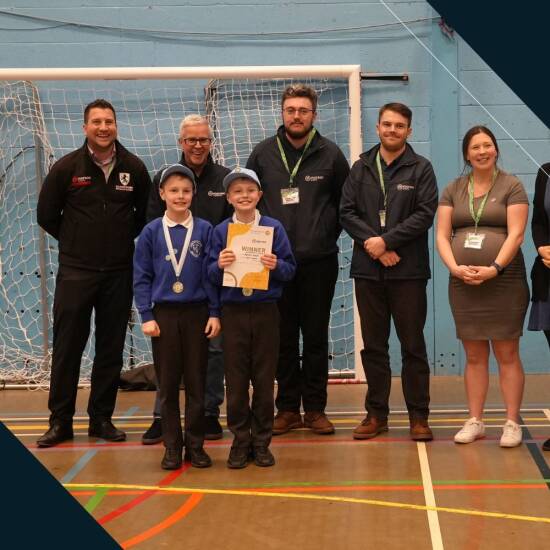
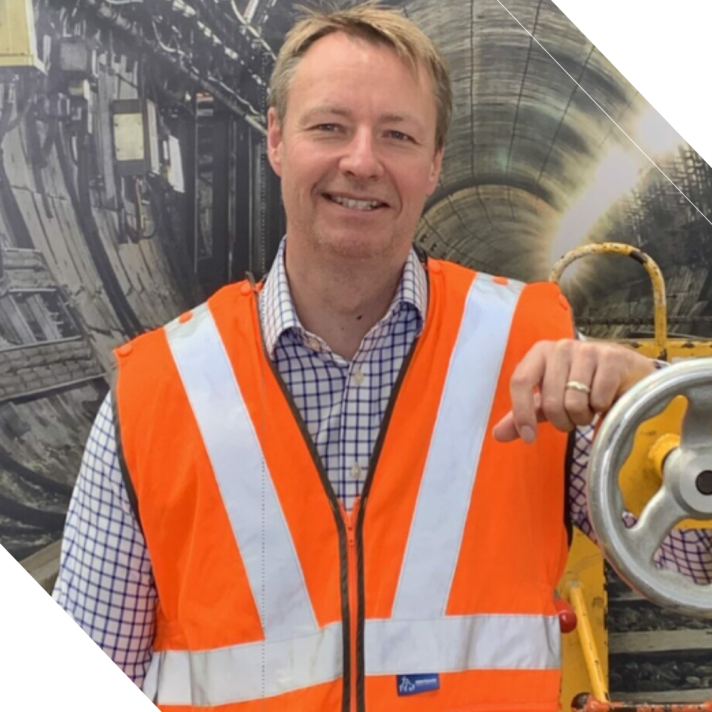
Gary Smithson, Rail Director at Morson Talent and Women in Rail Board Trustee, shares his personal journey to becoming an active ally in the rail industry.
Women in Rail Trustee Story Spotlight – Gary Smithson Rail Director at Morson
In March 2025, Morson Group attended the Primary Engineer celebration event, organised for young school students to encourage their enthusiasm and spark interest in STEM subjects.
Inspiring future engineers with Primary Engineer Programme


Jobs & useful
links
Close calls &
safety
Charity & community
Training & development
Morson’s London Rail division has achieved a landmark success by securing three major framework agreements with Transport for London (TfL). In a fiercely competitive market, we are proud to say that Morson is the only supplier to win all three frameworks.
Latest jobs
Work with us
Report a close call
How can I report a close call?
There are numerous ways to report:
TfL / RFLI – 0800 092 5995 or use the app https://tfl.info-exchange.com/apps/IncidentsOfflineform
Network Rail / RFLI – As per the Safe Work Pack.
Morson - email: hselondon@morson.com or use the following link: https://www.morson.com/about-us/health-safety-and-sustainability/report-a-close-call
Why should I report a close call?
Watch the short video (first video on the link below) and it will highlight some real life examples of why it is important to reprot close calls:
(The first close call is only 40 seconds long)
https://safety.networkrail.co.uk/safety/close-call/
Questions:
Have you ever walked past something and thought it didn’t look safe?
Have you narrowly avoid an accident?
If Yes. Did you do anything about it?
If No. The next person that comes along could be involved in an accident.
What is a Close Call (Near Miss / Hit)?
A close call is an event that had the potential to cause injury or damage
Have you ever thought:
‘Wow that was close!’
‘That could have really hurt!’
‘I almost tripped over that!’
Safety first
If you have any suggestions, safety concerns or content you would like to see in future editions please email getinvolved-london@morson.com or suggestions-london@morson.com
Get in touch
Useful contacts & links
Jobs & useful links
Morson HSE On-call (24/7)
0207 164 6127
hselondon@morson.com
TfL Incident Report Line
0800 092 5995
Morson Office (Canning Town)
020 3725 8300

Disturbance of Circadian Rhythms: Prolonged rest or time off work can disrupt an individual's circadian rhythms, which are the body's internal clock that regulates sleep and wake cycles. Returning to work on a different schedule, such as switching from days to nights, can lead to fatigue and reduced alertness. Below we go over some great tips which may help you prepare your rhythm for the change back to your normal working hours.
Gradual Transition; The key to a smooth transition is to do it gradually. Start by shifting your sleep schedule by 15-30 minutes per day, moving toward your desired night shift hours. This will give your body time to adjust without causing extreme sleep deprivation.
Adjust Your Environment; Prepare your sleeping environment to be conducive to daytime sleep. Invest in blackout curtains to block out natural light, and use earplugs or white noise machines to reduce daytime noise disturbances.
Plan Your Meals; Plan your meals strategically. Avoid large, heavy meals close to bedtime, as they can disrupt sleep. Instead, opt for light, balanced meals that won't leave you feeling too full or hungry during your night shift.
Prioritise Sleep; Recognize the importance of sleep and prioritise it in your daily life. Make sure to get at least 7-9 hours of quality sleep per day to support your overall health and well-being.
Avoid Overexertion; While transitioning, try to avoid strenuous activities or overexerting yourself during the first few days on night shift. This can help minimize fatigue and allow your body to adapt more easily.
Stay Hydrated; Proper hydration is essential for your health and alertness. Drink plenty of water throughout your shift, but be cautious about drinking too much right before bed to prevent frequent bathroom trips.
Should you continue to struggle with the transition despite following some of these guidelines, consider seeking advice from a healthcare professional or a sleep specialist.
Returning to work following the Christmas break should not be taken lightly. Prioritising safety and taking necessary measures to prevent accidents and incidents is paramount. By refreshing safety training, conducting thorough equipment inspections, performing hazard assessments, and fostering a culture of safety, workers can reduce the likelihood of accidents and incidents in the workplace. Adopting good safety habits immediately following the break ensures that everyone can work in a secure and productive environment, promoting the well-being of all involved.
Work incidents that occur following a long period of rest can be attributed to several factors, and while it's not universally true for all types of work, studies show that some of the points covered below certainly relate to our industry!
Reduced Awareness and Alertness: After a prolonged period of rest, individuals may experience reduced alertness and awareness when they return to work. This can result in slower reaction times and decreased ability to recognise and respond to potential hazards.
Of course, getting adequate rest can help, but we must take into consideration some additional points:
Avoid overexertion to help manage fatigue and stay alert. Avoid caffeine and sugar; although caffeine can provide a temporary boost in alertness, use it strategically to avoid potential energy crashes.
Prioritise safety; ensuring you are up to date on safety alerts and safety procedures to maintain a high level of awareness of the potential workplace hazards.
Maintain a Positive Attitude; a positive attitude can improve your mental alertness, focus on the task at hand and stay engaged in your work!
Reduced Familiarity: Extended breaks from work can lead to a reduction in familiarity with work tasks, equipment, and safety protocols. Workers may need time to make themselves familiar again with their job duties, which can increase the risk of errors and accidents.
Regularly Communicate with Supervisors; maintain open and regular communication with your supervisors. They can provide guidance and support as needed, ensuring that you have the necessary resources and knowledge to perform your job effectively. The same goes for your colleagues! Don’t be afraid to seek the guidance of more experienced colleagues or mentors to help you get back into the groove.
Review and Refresh Skills; before returning to your site, take some time to review and refresh your railway/track skills and knowledge. This may include reading through manuals, attending refresher training, or practicing basic techniques
Lack of Preparation: Workers returning to work after a break may not prepare enough for the return! This can include not being prepared with your documents; site information; PPE… the list goes on!
Check before you leave; on your first shift back (or even beforehand would be best) its important that you check all of your certification to ensure that you have everything you need to start right the first time! Sentinel; Small Tools; Track Certificates and all additional documents you may need for your works. Anything expired or due to expire? Get in touch with your manager and get this fixed as soon as you return. Double check your PPE, is it clean? Is it all available? If you use a face fitted mask – are you clean shaven? Make sure everything is in your bag or vehicle so when you arrive to site you’re ready to go! Don’t forget to check your site information and attendance times well in advance so you can prepare your journey to avoid any complications with traffic.
The Christmas (Holiday!) season is a time for celebration, relaxation, and spending quality time with loved ones. Some of us are off during the “shut-down”, some of us remain working to carry out essential maintenance for the infrastructure, as well as providing our services to our clients who may still need to operate during the festive period! Whichever may be applicable to our workers, it’s crucial that during any potential days off (weekends/bank holidays) we make the most of our time and relax, trust me, we’ve all earned it this year!
NEWS
Blogs & features

Morson Canning Town London rail team secures three major TfL frameworks
Advice & guidance
A reminder about winter safety
Spotlight
Edward Kumie
Spotlighting the excellent feedback received from across the network
Underfoot Conditions:
Slips, Trips and Falls are the largest contributors to incidents and accidents on the London Underground; with ‘Falls’ actually being the largest contributor to workplace fatalities across the country!
Be mindful of your worksite, in particular access and egress routes to and from your worksite. Sleepers will be hazardous due to frost and ice; therefore, stick to your training and ONLY WALK ON THE BALLAST! Also, walking on rails is strictly not permitted. This practice is frequently seen even amongst the most experienced of people. Rails; especially at this time of year; are slippery!
Imagine thinking metal and ice are a good combination?
Please stay vigilant to where you are walking and / or stepping, if the area isn’t safe due to the underfoot conditions then this must be reported to your on-site supervisor / manager.
And remember….
Speak with one another, especially at this time of year. Allow a colleague or friend to lean on you if necessary. Winter Depression is very serious and we want you all to make sure you are looking after yourselves and those around you.
Morson have a number of Mental Health First Aiders within the Office and amongst the Team so please feel free to speak up – in confidence.
If you have any questions, concerns, or would like to speak to Morson Talent’s Health and Safety Team directly please email: hselondon@morson.com.
With the colder temperatures at this time of year, we wanted to remind you all that working safe and going home safe is just as important to us now as it is at any other time of year.
Please be mindful of your PPE, ensure it is in full working order and free from any kind of damage. Also, we wanted to remind you of how to safely protect your head from the cold:
Approved Balaclavas or Hard Hat Liners are only to be worn.
This means absolutely no Woolly Hats or Hoodies / Hooded Tops! These not only prevent your hard hat from a secure fit but can also impair your hearing if over your ears. You are all aware that Woolly Hats and Hoodies are also banned anywhere on the rail infrastructure.
“Just wanted to summarise the great work that Edward Kumie has been doing for me with regards to surveying the Extended Engineering Hours sites.
Edward started with me back in the beginning of October 2025 when I needed a Protection services PWT to cover us whilst we conducted the TRS walks. I remembered Edward from when he worked with TFL engineering and asked him whether he would be happy to assist with surveying the sites for me because we were so tight for time and resource and I knew Edward had experience with engineering and Dilap surveying.
Edward agreed and I put the request through protection services to keep Edward for the entirety of October and they were fine with this request. Since then Edward has significantly helped with capturing Dilap information in great detail, ensuring it is captured and recorded in good time.
With his vast experience in engineering I do not have to explain to Edward what is required. He uses his own initiative every night and relays information and reports back to me and Adam without fail. I decided to keep Edward further to complete these surveys and he is currently with me until the beginning of December but I will probably request him to continue marking the site with packing info and so on, throughout December.
Edward is a valuable asset and feel like he is wasted in protection services. He has worked on TDU for several years prior to leaving TFL engineering and has knowledge of all our sites and processes. I do feel using Edward in this way brings great value to the business and also from what I understand when speaking with Edward, he thoroughly enjoys this element of the work.“
Feedback shared by Scottie Roberts, Senior Construction Manager, APD Track
*Remember if you are returning from leave / holiday, then do so safely, including checking you have all of your publications, certificates and equipment and PPE for work.
Thanks to everyone for their hard work and dedication throughout the year, both to existing Morson workers and those who joined us this year.
As always we are more than happy to have your involvement in the company. If there is anything you want to see included in the next edition of the newsletter please do contact us + if you have suggestions for improvements or changes:
Work Safe. Home Safe.
Graham Timbers
Morson Operations Director
Winter is here and so is the next edition of our newsletter:
Articles in this edition include:
Positive Feedback for our Site Workers
Winter Working
New Contracts Awarded
Driving Tips
Returning to Work After the Christmas Break*
And many more.
Spring/Summer Newsletter
Welcome to our latest newsletter
Tip 8: Eyesight – get it checked!
Ideally, you should take an eye test with an optician every two years, or immediately if you suspect you have a problem with your eyesight. Don’t let vanity get in the way. If you need prescription lenses for driving, you must wear them whenever you drive and, for summer driving, ensure your sunglasses have prescription lenses, too.
Tip 9: Don’t drive tired
Driving when tired is a significant contributory factor in road crashes and you should plan your journey so you have time to take breaks. As a guideline, you should take a break of at least 15 minutes whenever you have driven continuously for two hours, or less than this if you begin to experience fatigue whilst driving. Short, frequent, breaks should be taken when you’re fatigued. It’s always best to go for a walk to get some fresh air and stretch your muscles. A tea, coffee, or other caffeinated drink would be a wise perk-me-up. If tired, stop at the earliest opportunity and take a break.
Tip 10: Vehicle condition checks are crucial
And finally – the most obvious tip of all, but arguably the most important. Ensuring that your vehicle is serviced regularly in line with the manufacturer’s recommendations will help to avoid breakdowns and accidents caused by vehicle faults. You must also check the following regularly, and before every long journey:
All fluid levels including oil and water
Tyre tread depth and pressures
Headlights and indicators
Windscreen wipers
Seatbelts
Immediately report any faults to your company representative.
Take extra care with tyres. The legal limit for minimum tread depth on tyres is 1.6mm. If a tyre has any sidewall damage it should be replaced immediately. Worn or damaged tyres are not only dangerous, they are illegal – with a fine of up to £2,500 plus three penalty points per tyre.
Tip 11. Seatbelts
All drivers and passengers to wear seatbelts whilst driving.
Tip 1: Don’t drive distracted
Driver distraction is one of the major causes of road traffic accidents. Nearly 80% of all accidents have distraction as a cause of the accident. Stay focused on the task.
Tip 2: Keep your distance
As our roads become increasingly congested just remember, you can’t crash into space! The more space you keep around you, both front and rear, the less chance you will have of a collision. Here’s an alarming fact from the Institute of Advanced Motorists: A sneezing driver can travel as far as 50ft with their eyes closed. Maintaining adequate distance provides a safety buffer should the unexpected occur.
Tip 3: Only a fool breaks the two second rule
During dry weather conditions, you should maintain at least two seconds-worth of distance between you and the vehicle in front. When visibility is low such as during light fog, light rain or night-time driving, you should double the distance to the car in front to a minimum of four seconds, and in severe weather conditions such as snow and ice, then double the distance again.
Tip 4: More haste less speed
In busy congested conditions or in built-up areas, give yourself time. Plan your journey and give yourself plenty of time to reach your destination. There’s no need to speed and you won’t get there any quicker. Don’t treat speed limits as a target and ensure you are constantly taking road and traffic conditions into account.
Tip 5: Look ahead and anticipate
Widen your radar. Then widen it again. Don’t just look at the vehicle in front and in your mirror to observe what is going on immediately around. Anticipate what is happening ahead of you by looking at the furthest point along the road as well as observing the behaviours of those around you. Remember, the average driver reacts to an expected event in 0.7 of a second – but up to three times longer when the event is unexpected or the driver is distracted.
Tip 6: Watch out for road markings
Road markings and signs are essential to every driver’s safety. As a general rule of thumb, the more signs and road markings the greater the chance of danger. On the open road, the presence of streetlights will indicate a junction or roundabout coming up – clearly an area of greater danger. Every roundabout in the UK is lit by streetlights at night – a fact not everyone will be aware of.
Tip 7: Switch off your mobile phone!
It is illegal to use a mobile phone while driving or while stopped with the engine running – unless it’s in hands-free mode. If you break this law, even if you are otherwise driving safely, you could face a fine of £100 and three penalty points on your licence. While it’s an offence to be seen holding a mobile phone, regardless of whether driving has been affected or not, this is not the case for phones in hands-free mode. However, if you are seen not to be in control of a vehicle whilst using a phone in hands-free mode you can be prosecuted for that offence.
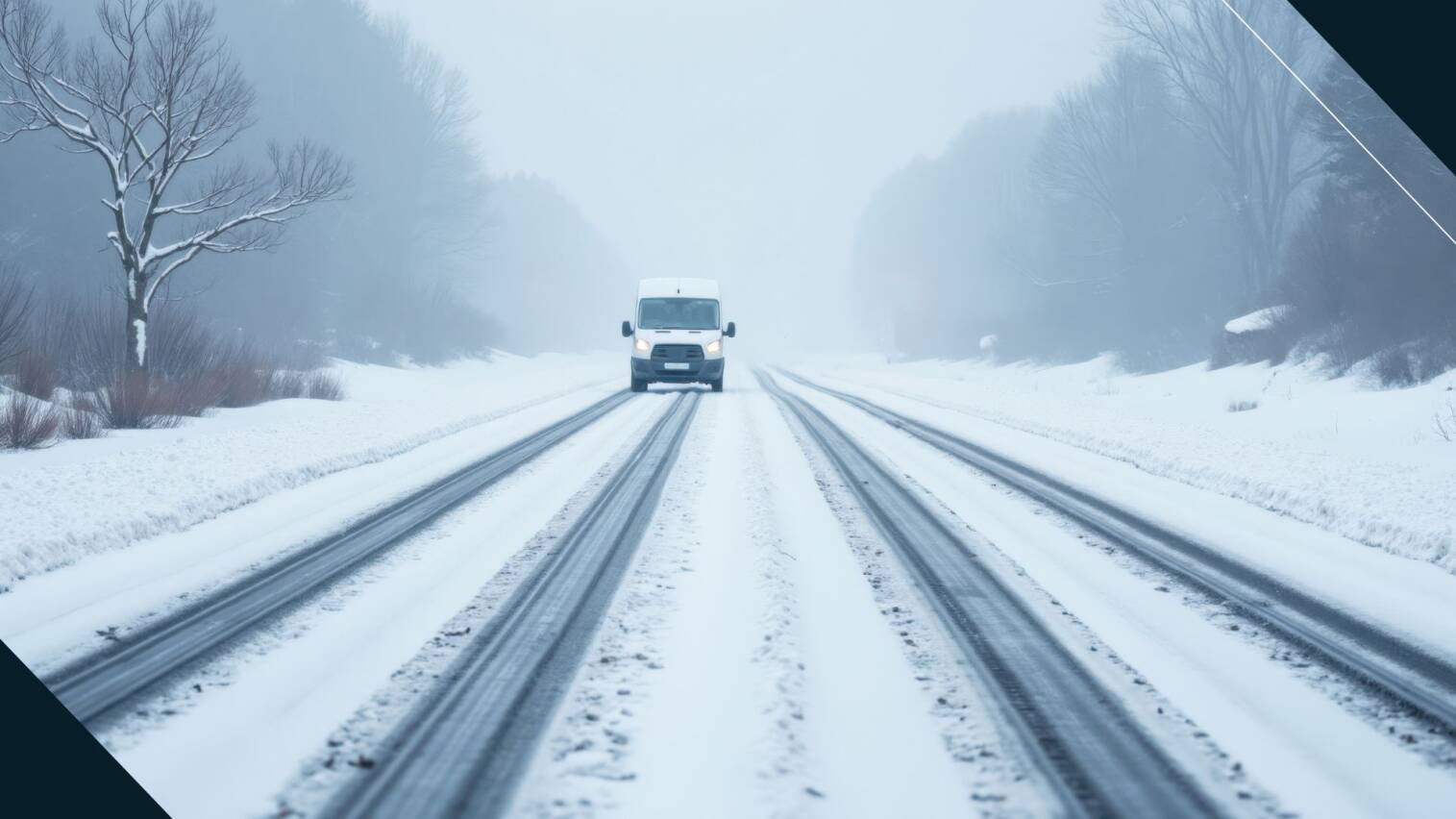
One thing that we must take into consideration though, is our return to normal duties following the festive period… we know, none of us want to!
Unfortunately, in recent years, 25% of our overall injuries [for that year] have occurred in January following the full return of all of our workers! (Data from 2024 & 2025)
This is because the break can disrupt routines - Prolonged rest or time off work can disrupt an individual's circadian rhythms, which are the body's internal clock that regulates sleep and wake cycles. Returning to work on a different schedule, such as switching from days to nights, can lead to fatigue and reduced alertness.
Leading up to our return, or even following a long weekend off, it’s important that we gradually transition our sleeping pattern, shifting your sleep schedule 15-30 minutes per day if possible, moving toward your desired night shift pattern, this can give your body time to adjust!
Staying hydrated, limit caffeine and alcohol use leading up to your return, prioritise sleep and avoid over exerting yourself whilst trying to transition back into a consistent routine.
It’s important that we refresh ourselves with our training and safety guidelines for whatever works we might be doing. Spending time before the first shift (and every shift for the first couple of weeks) to remember how our works are coordinated and carried out safely will help massively to reduce the risk of incidents occurring! Establish clear lines of communication and ensure that all team members are informed about changes in the work schedule, safety guidelines, and any potential hazards.
As much as the time off and time with our family/friends is important for our mental health, when were ready to come back, we need to be 100%!
Read the full article for our comprehensive guide to get everyone back to work safely.